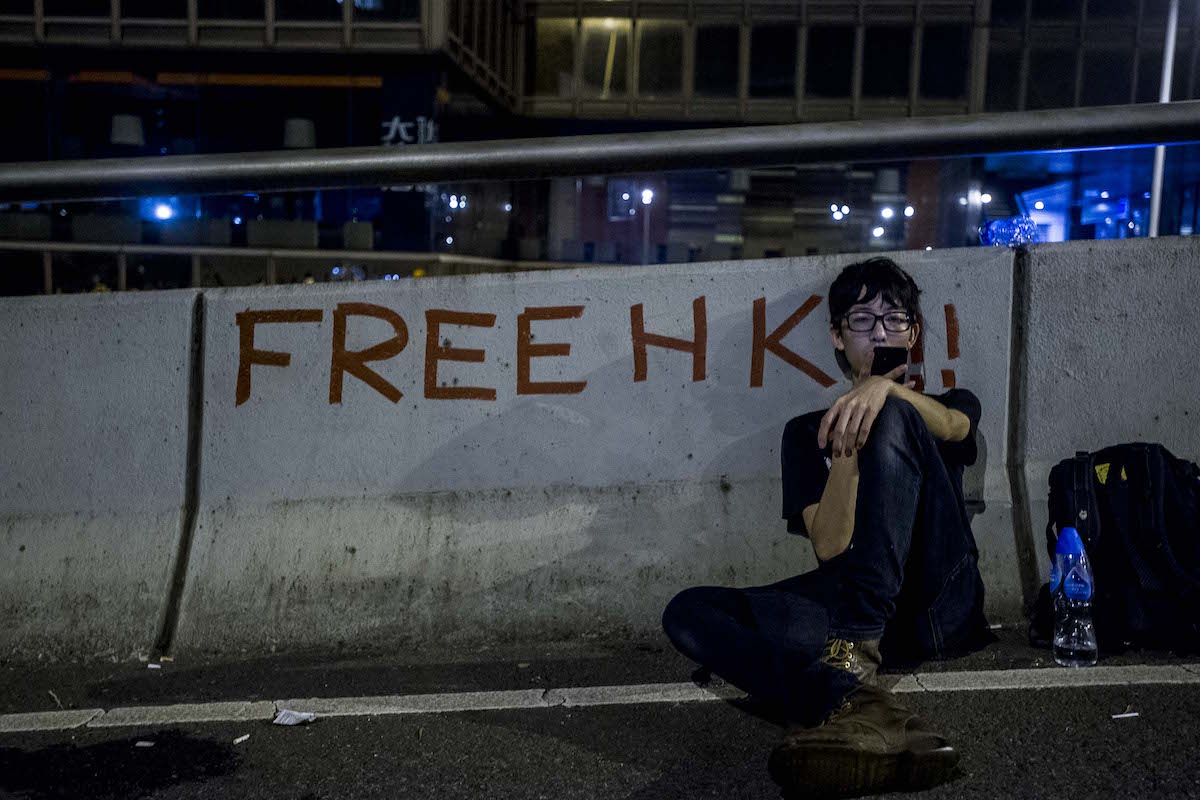Apple Inc has removed an App connected to Hong Kong’s pro-democracy protests from its digital stores in recent days, after a Chinese state newspaper lashed out at the U.S. tech giant for allowing the software.
Chief Executive Tim Cook defended the decision on Oct. 10 in the wake of criticism the company was trying to appease mainland China, following months of violent protests that have plunged Hong Kong into crisis.
“These decisions are never easy, and it is harder still to discuss these topics during moments of furious public debate,” Cook wrote in a letter to employees, saying the removal “best protects our users.”
The app is a crowdsourced map service that allows Hong Kong protesters to track police activity. Apple removed HKmap.live from its app stores after saying it received concerns the software endangered police and residents.
Apple’s decision comes after Google also dropped a mobile game from its online stores that allowed players to role play as a Hong Kong protester. It said it decided the app called “The Revolution of Our Times” breached policies that forbid capitalizing on “sensitive events.”
The moves thrust both companies into increasing controversy between Beijing and the protesters, who are demanding more democracy and equality in the territory. Rising political tensions have already ensnared other U.S. and Hong Kong companies, who, accused of siding with the protesters, risk upsetting authorities as well as consumers in mainland China.
The People’s Daily, in its commentary on Oct. 8, accused Apple of ignoring the truth, and called the new app “toxic software.”
Apple said it pulled the app after police concerns it was being used to target and ambush officers, and that criminals have used it to victimize residents in areas where there is no police presence.
Charles Mok, a member of Hong Kong’s legislative council, said he was deeply disappointed with the decision. He also disputed concerns over the App, saying residents, media and others used the App to avoid dangerous areas where large numbers of police were clashing with protesters.
“We Hongkongers (sic) will definitely look closely at whether Apple chooses to uphold its commitment to free expression and other basic human rights, or become an accomplice for Chinese censorship and oppression,” he wrote in a letter to Cook and posted on Twitter.
The app’s developer also disputed the concerns on Twitter.
The decisions by both Apple and Google contrast with the approach of the U.S. National Basketball Association, which defended a team executive that tweeted support for the protesters, sparking a furor.
China has canceled broadcast of preseason games in response and Chinese sponsors have distanced themselves from the NBA, which risks losing a lucrative overseas market.
Human Rights Watch urged the NBA to stand firm and continue to defend the right to free speech.
“Chinese authorities have become increasingly aggressive about using China’s economic might, and their ability to dictate the behavior of Chinese businesses, to impose Beijing’s views overseas. In return, companies keep bowing to that pressure,” HRW executive director Ken Roth wrote this week.
